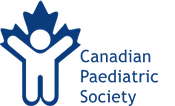Paediatricians call for better diagnosis of urinary tract infections
OTTAWA— Urinary tract infections (UTIs) are common among Canadian children, yet many are diagnosed when there is no actual infection. The Canadian Paediatric Society is reminding physicians about the importance of accurate diagnosis of UTI to prevent the overuse of antibiotics and unnecessary invasive investigations.
“Doctors are worried about missing a UTI, and so they often diagnose with any symptom or laboratory result that could possibly mean that the child has a UTI. This leads to unnecessary antibiotic treatment,” said Dr. Joan Robinson, chair ofthe CPS Infectious Diseases and Immunization Committee. “They worry that missing the diagnosis of UTI for a day or two could lead to long-term health effects including high blood pressure and renal failure, but there is no evidence to support this concern.”
In a new position statement published today, authors note that many of the recommendations for the management of UTIs are based on expert opinion because studies are lacking. In the absence of evidence to support the belief that a missed diagnosis will lead to greater health issues, the CPS is urging physicians to take the time to properly diagnose a UTI.
“Doctors need to ensure accurate diagnosis with each individual case,” said Dr. Robinson, one of the statement’s co-authors. “Procedures like rapid urine tests and bag samples often lead to false positive results because samples are easily contaminated. Invasive radiologic tests for most UTIs are not needed. For very young children with a UTI a simple ultrasound is sufficient to rule out any serious abnormality.”
To properly diagnose a UTI, the CPS recommends:
- Babies between two and 36 months of age with a fever of greater than 39°C and no other obvious source for fever should have urine collected and analyzed. Urine should be collected by a catheter or suprapubic aspiration (SPA).
- In toilet-trained children, a midstream urine sample rather than a catheter or SPA specimen should be submitted for urinalysis and culture.
- Urine collected by bag should never be used on its own for diagnosis of a UTI.
-30-
Media inquiries:
Katie Olsen
Media Relations Coordinator
Canadian Paediatric Society
613-526-9397, ext. 247
media@cps.ca
About the Canadian Paediatric Society
The Canadian Paediatric Society is a national advocacy association that promotes the health needs of children and youth. Founded in 1922, the CPS represents more than 3,300 paediatricians, paediatric subspecialists and other child health professionals across Canada.
Last updated: Jan 13, 2015
